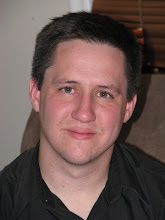Welcome to Part II of the Art of Research. If you missed Part I, Go Here. I am a little short on time, so Part 2 will itself be a two-parter. Honestly I think this is better, because there is a lot to cover, and small bites are best.
Today's topic covers:
The Role of Research in Genre - Physical World Creation
There are certain genres where research seems to be a given. Historical or Period works of fiction must of necessity be based on some amount of historicity to actually fall within their given genres. I you are going to write a novel about intrigue in the court of King George II, you had best know a bit about King George II and his court. Simply using his name and dates of rule means it's not about him, it's about someone who you stole and abused a name and life from. There are greater nuances to this that I will address later that MANY YA writers are guilty of ignoring, but we'll delve into that another time.
Either way, if your story is set in the real world, even a historical variation or period of it, you know (or should learn) the basics of your own planet, such as how long the day is. You know about gunpowder and bullets (if in that period), and more.
What about if you write high fantasy (ie, fantasy not set in or connected to our world, such as Middle Earth)? Isaac Asimov made some great points, which David Farland has reiterated at times. You will be crafting a world. You may want to simply say "Oh, well it has huge giants and trees bigger than mountains and..." You get the idea. But ask yourself this: Is that possible on your world? This may sound silly. You may say "Well, I made it, so yeah!"Not quite. I am assuming you want to write a best seller, not a throw away. You need to determine if the elements and characters and even world are internally consistent. What are the rules of physics in your world? Isaac Asimov believed you need to take it from the very beginning of your fantasy universe: How old is it? How was it created? How old is the solar system of your world? Are there other planets and are they inhabited? What is your planet made of? If your planet has a molten iron core, then it will have a magnetic field that protects it from the dangers of cosmic and solar articles. If it's strong, you get a thick atmosphere, if it's weak you get a thin one. If there is no molten core, you may not have an atmosphere or you should understand why your world is an exception. Of course, if there is a molten core, you also get volcanoes, plate tectonics, the whole shebang. how dense is your planet and how large is it? If it's smaller than our earth, then gravity will not be as strong and you can have giant trees and giants and more (it will also affect your atmosphere...). I it's large and dense, giants most likely are not going to exist. Mountains will be low and wide and trees will be stumpy because gravity will prevent them from growing or staying too high. Unless your trees use iron or steel in them. And flying would certainly be difficult. Bones of humans would be dense, whereas on a lower gravity world they would likely be lighter and more brittle. Does your planet spin fast or slow (affects daytime/nighttime periods and weather) and how far does it orbit the sun from (temperature difference, affects plants and wavelength of light), the tilt of the planet (affects seasons) and is it a circular or elliptical orbit (more season issues, as well as if your planet even has noticeable years). Again, it's about internal consistency.
Research then plays a key in fantasy. If you are going to make up a world, even an alien sci-fi world, you need to understand what your own world is like. Can yous tart with what you imagined and work backwards? Absolutely. But make sure you end with some answers to these questions and verify your story and world are possible internally. Astute readers, the kind who tell everyone and rave about your books (or bash them), will notice. So yes, research includes learning some basics of physical science. Perhaps it involves researching languages because you need to create a small or large sampling of a new language.
To make it believable, to make it so readers stay in your story and don't get jolted out and say "what the..." you will need to do your research. This means the internet. It can mean borrowing your child's school books for a night. Even wikipedia is excellent for basic and even some complex issues, and typically have a wealth of primary sources linked to them you can read.
It's not enough for you to simply make up a world if you want to be a master storycrafter. You need to craft one. Anyone can tell a story, but the best create believable ones.
Next week we will cover the topic The Role of Research in Genre - Culture and History Creation. We'll cover how after your world is created you will need to research the socio-political atmosphere as well as basic concepts of research.
Wednesday, August 10, 2011
Day 92 - The Art of Research, Part II - Writing Wisdom
Categories:
The Art of Research
,
Writing Wisdom













0 comments:
Post a Comment